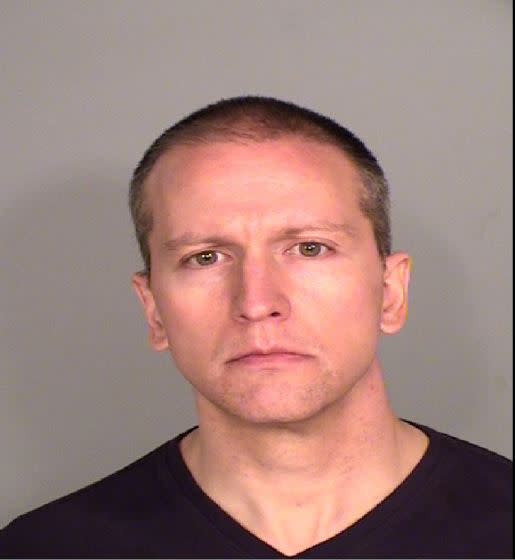Opinion: No, Derek Chauvin isn't being subjected to double jeopardy
- Oops!Something went wrong.Please try again later.

Is former Minneapolis Police officer Derek Chauvin the victim of an unconstitutional piling-on by the U.S. Justice Department? The answer is no — with an explanation that isn't completely satisfying.
On Friday the department announced that a federal grand jury has indicted Chauvin and three other former officers on federal civil-rights charges growing out of the death of George Floyd. (Chauvin also has been indicted in connection with a 2017 incident in which he allegedly struck a 14-year-old boy with a flashlight.)
Chauvin, who was convicted by a jury in state court last month of second-degree murder, third-degree murder and second-degree manslaughter, now faces federal prosecution for violating Floyd’s right to be free from unreasonable seizure and unreasonable force by a police officer. The other former officers have yet to be tried in state court.
The 5th Amendment, which the Supreme Court has applied to the states, says that no person shall be “subject for the same offence to be twice put in jeopardy of life or limb.” So why isn’t Chauvin being placed in jeopardy twice for killing Floyd?
There are two reasons.
First, state and federal prosecutors are considered “dual sovereigns” that can bring separate charges growing out of the same conduct. That principle was reaffirmed by the Supreme Court in a 2019 decision involving an man who was prosecuted by both the state of Alabama and the federal government for possessing a firearm after being convicted of a felony.
The Los Angeles Times editorial board had urged the court to rule the other way. But even if the court had followed our advice in that case, the federal civil-rights prosecution of Chauvin could still be justified on the grounds that it involves different “elements.” That's the second argument for the proposition that he's not being subjected to double jeopardy.
The indictment says that Chauvin “deprived George Floyd of the right, secured and protected by the Constitution and laws of the United States, to be free from an unreasonable seizure, which includes the right to be free from the use of unreasonable force by a police officer." That’s different from the state murder charges of which he was convicted.
But the indictment goes on to explain what “deprivation of rights under color of law” means in Chauvin's case: “Specifically, Defendant Chauvin held his left knee across George Floyd's neck, and his right knee on Floyd's back and arm, as George Floyd lay on the ground, handcuffed and unresisting, and kept his knees on Floyd's neck and body even after Floyd became unresponsive. This offense resulted in bodily injury to, and the death of George Floyd.”
A lay person reading that could be excused for asking: “Wait, wasn’t he already convicted of doing that?”
Harry Litman, a former U.S. attorney and L.A. Times op-ed contributor, suggested on Twitter that the federal charges against Chauvin might be a sort of insurance policy. He said one possibility was that federal officials were concerned about a mistrial or reversal in the state's successful prosecution.
Legally speaking, Chauvin isn’t being twice put in jeopardy for the same offense. But the state and the federal government went after him for the same deadly and indefensible conduct. That arguably violates the spirit of the Constitution's Double Jeopardy Clause, if not the letter.
This story originally appeared in Los Angeles Times.
